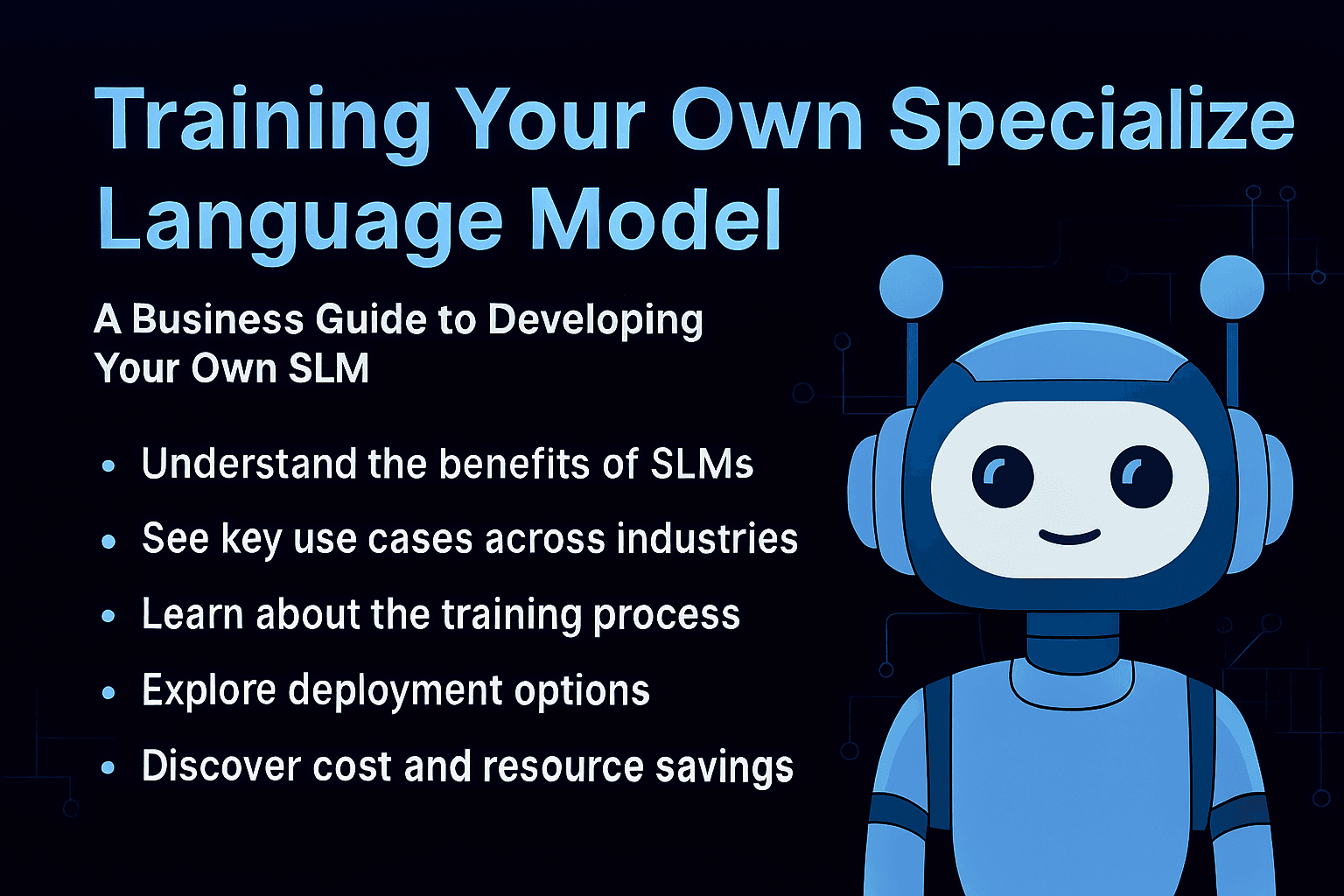From ChatGPT to Custom AI: How Small Language Models Empower Smarter Businesses
Why every business should start thinking small — small language models, that is. Faster, private, and built to truly understand your domain.

Nitin Garg
Founder, Zenthos
5 min read · Tue Jul 15 2025

ChatGPT is brilliant at a lot of things — from drafting emails to explaining quantum physics — but it’s still a generalist.
It can tell you how to make the perfect cup of coffee, but it may hesitate when you ask how to reconcile healthcare compliance under HIPAA or optimize a SAP rollout.
That’s because models like ChatGPT, Gemini, or Claude are trained on enormous amounts of general-purpose data. They’re designed to be good at everything, not an expert at one thing.
And in business, expertise matters.
That’s where Small Language Models (SLMs) step in.
What Are SLMs, and Why Should You Care?
SLMs are compact, fine-tuned versions of large language models (LLMs), built to master specific domains — like finance, law, healthcare, or cybersecurity.
Instead of trying to understand the entire internet, they focus on the data that matters most to your organization.
This makes them more:
- Accurate in specialized areas
- Faster in response time
- Affordable to deploy and maintain
- Private — since they can run on your own infrastructure
For example, a hospital can use an SLM trained on anonymized medical records to help doctors summarize case histories.
A law firm can build one that drafts contracts and checks for compliance.
A bank can train a financial SLM to detect anomalies in transaction data or assist in risk assessment.
A manufacturer can use one to interpret machine data for predictive maintenance.
Even an e-commerce brand can fine-tune a retail SLM that understands customer intent and improves product recommendations.
The Efficiency Advantage
Training an LLM from scratch is a massive undertaking — requiring billions of data points, enormous computational power, and months of GPU time.
SLMs, on the other hand, can be trained on domain-specific datasets using far fewer resources.
They can also be created through model pruning — starting with a pre-trained LLM and carefully trimming away the unnecessary parameters.
What remains is a lean, high-performing model that’s laser-focused on your domain — delivering expert-level insights without the overhead.
The result?
An AI that doesn’t just “sound smart,” but is smart about your business.
When Precision Beats Scale
General-purpose AI models are impressive, but scale comes with trade-offs.
In contrast, a specialized model trained on verified internal data delivers precision, consistency, and trust.
Imagine:
- An insurance AI that explains policy terms in plain English.
- A legal AI that detects risky clauses before contracts are signed.
- A customer-support AI that knows your product documentation better than your helpdesk ever could.
These are not futuristic concepts — they’re practical examples of what domain-specific SLMs are already achieving today.
Build Your Own AI Advantage
Large language models democratized access to AI, but small language models are democratizing expertise.
They allow every organization — from startups to enterprises — to build their own intelligent assistant, trained on their data, aligned with their workflows, and deployed securely on their infrastructure.
At Zenthos, we help businesses train and deploy their own SLMs — tailored to their domain, optimized for performance, and designed for ROI.
Ready to build your own domain-expert AI? Talk to us at Zenthos and discover how a Small Language Model can give your business the precision, privacy, and intelligence it truly deserves.
